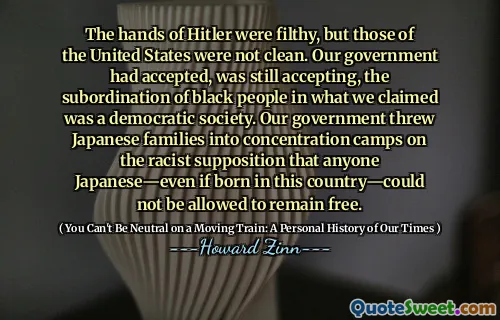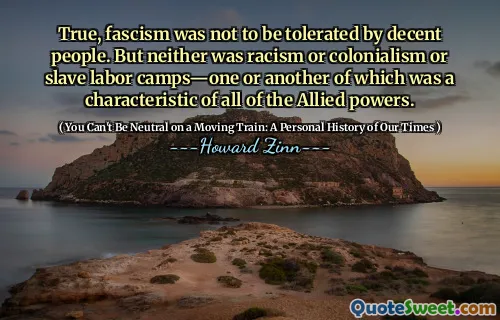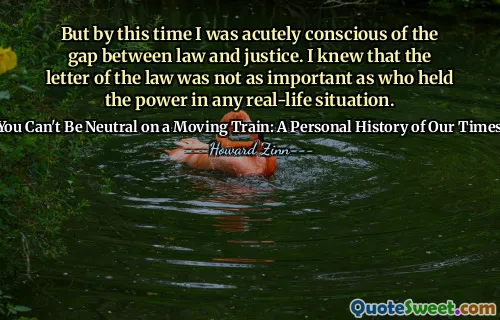"You Can't Be Neutral on a Moving Train: A Personal History of Our Times" by Howard Zinn is a reflection on his life and the socio-political movements he witnessed. Zinn, a historian and political activist, discusses how personal experiences shaped his understanding of social justice and the importance of being politically active. He emphasizes that neutrality in the face of injustice is not an option, as history is continuously shaped by the actions and choices of individuals.
The book provides a narrative that intertwines Zinn's own life with significant historical events, showcasing how ordinary people can effect change. Through anecdotes and observations, he expresses his belief that activism is essential for a fair society. By recounting moments from the civil rights movement, anti-war protests, and other grassroots efforts, Zinn inspires readers to engage in the fight for equality and justice.
Zinn's writing style is accessible and engaging, making complex historical themes relatable to a broad audience. He encourages readers to critically examine history and recognize their role in shaping it. Ultimately, "You Can't Be Neutral on a Moving Train" serves as both a memoir and a call to action, reminding us that taking a stand is vital in the ongoing struggle against oppression.
More »
Today Birthdays
1866 -
Gilbert Murray
1959 -
Patrick Nielsen Hayden
1956 -
Lynda Barry
1920 -
Isaac Asimov
1928 -
Daisaku Ikeda
1938 -
Robert Smithson
1967 -
James Marshall
1938 -
David Bailey
1936 -
Roger Miller
1909 -
Barry Goldwater
1983 -
Kate Bosworth
1962 -
April Winchell
1940 -
Jim Bakker
1963 -
Matthew Stewart
1942 -
Dennis Hastert
1905 -
Michael Tippett
1970 -
Eric Whitacre
1947 -
Jack Hanna
1858 -
Beatrice Webb
1972 -
Taye Diggs
1963 -
David Cone
1991 -
Ben Hardy
1913 -
Anna Lee


